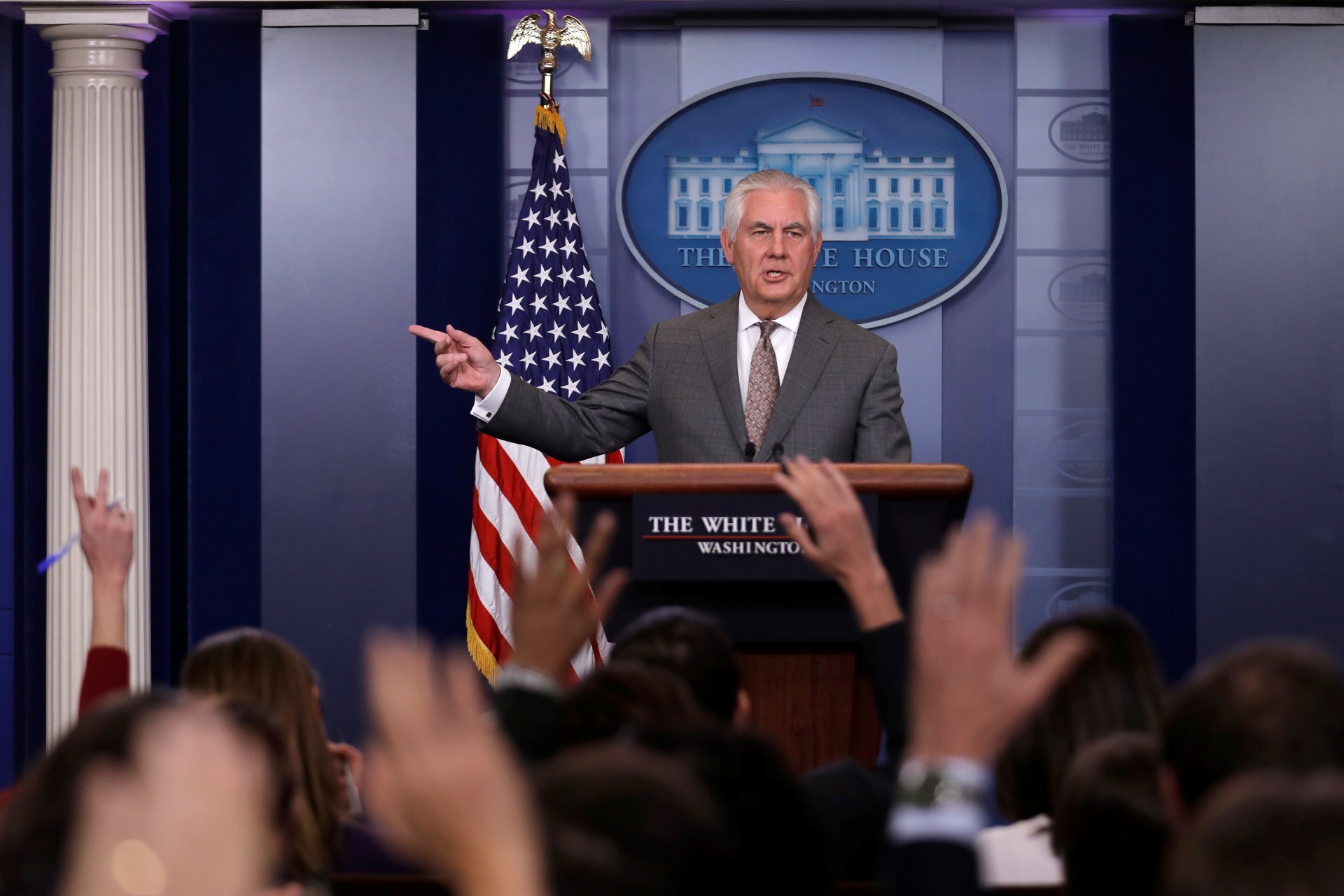Year in Review: The Trump Administration Disrupts U.S. Cyber Diplomacy
A look back at the Trump administration’s approach to cyber diplomacy and what it means for next year.

By experts and staff
- Published
By
- David P. FidlerSenior Fellow for Global Health and Cybersecurity
In July, Secretary of State Rex Tillerson closed the Office of the Coordinator for Cyber Issues and reassigned its portfolio and staff to the State Department’s Bureau of Economic and Business Affairs. This reorganization provoked criticism that the Trump administration was damaging the State Department’s ability to engage in effective diplomacy on a range of important cyber issues. The resulting controversy catalyzed an energetic debate about U.S. cyber diplomacy. As 2017 closes, how the administration’s decision and the debate it stimulated transform U.S. cyber diplomacy remains one of the most important cyber policy issues to follow in the new year.
Disruption
Foreign and national security policy on cyber challenges grew as opportunities and threats in cyberspace proliferated for the United States. The Obama administration put cyber diplomacy on firmer policy and institutional grounds by adopting the International Strategy for Cyberspace and creating the Office of the Coordinator for Cyber Issues within the State Department, with Christopher Painter as the first coordinator. Strategic thinking about, and high-level State Department commitment to, cyber diplomacy became accepted as critical components for U.S. foreign and national security policy. Recommendations to the incoming Trump administration stressed the need to maintain and enhance these pillars of cyber diplomacy.
Secretary of State Tillerson’s elimination of the Office of the Coordinator for Cyber Issues disrupted this consensus. The extent of the disruption appeared potentially greater because the Trump administration did not have a discernable strategy for cyber diplomacy. The executive order on cybersecurity issued in May required the State Department develop an international strategy for cybersecurity cooperation, but the September deadline for meeting this requirement has come and gone. Compounding concerns about the lack of a strategy and the downgraded State Department commitment for cyber diplomacy were fears the Trump administration was gutting the State Department generally, destroying morale of U.S. diplomats, and exhibiting disdain for traditional diplomacy.
Deliberation
The Trump administration’s actions triggered wide-ranging discussion about cyber diplomacy and what was needed to make it a more effective part of U.S. foreign and national security policy. By the end of the Obama administration, it was clear that having a strategy and a dedicated State Department office for cyber diplomacy did not guarantee success. Simply replicating the Office of the Coordinator for Cyber Issues and regurgitating the International Strategy for Cyberspace will not answer the metastasizing cyber dilemmas confounding U.S. foreign and national security policy.
One of the most high-profile efforts to emerge from the deliberations stimulated by the Trump administration’s disruption of U.S. cyber diplomacy was the bipartisan “Cyber Diplomacy Act of 2017” introduced in the House of Representatives in September and reported out of the House Committee on Foreign Affairs in November. The bill catalogs why cyber diplomacy is important to the United States (Section 2), contains provisions to shape U.S. international cyberspace policy (Section 3), creates an Office of Cyber Diplomacy in the State Department to advance such U.S. policy (Section 4), and requires the Secretary of State produce an international strategy for cyberspace (Section 6).
This proposed legislation has been largely received as a serious and welcome response to the strategic and institutional challenges of conducting effective cyber diplomacy. As Cameron Kerry has argued, the bill recognizes that “protecting security in cyberspace and promoting digital communications . . . have become critical to the mission of the U.S. government,” which will can better execute strategic initiatives “with a fully empowered Office of Cyber Issues able to represent the full range of issues involved.”
Determination?
The new year could see important developments that will shape U.S. cyber diplomacy for the rest of the Trump administration, and perhaps beyond. The State Department is expected to release soon its long-awaited strategy for international engagement on cybersecurity, and the White House is ready to issue the Trump administration’s first National Security Strategy. Support for the Cyber Diplomacy Act of 2017 suggests that it might advance towards adoption in Congress.
Convergence in these executive branch and legislative actions could potentially put cyber diplomacy efforts in a stronger position than they enjoyed before Secretary Tillerson set off the alarm bells in July—but only if the Trump administration is determined to make American cyber diplomacy great again. However, too many worries exist about the administration’s priorities and behavior, the deterioration of internet freedom, the abuse of social media by foreign governments and terrorists, the impasse on global cyber norms, the continued growth of cybercrime, and the coercive nature of cyber geopolitics for cyber diplomacy enthusiasts to be sanguine, even with a new strategy and State Department office.